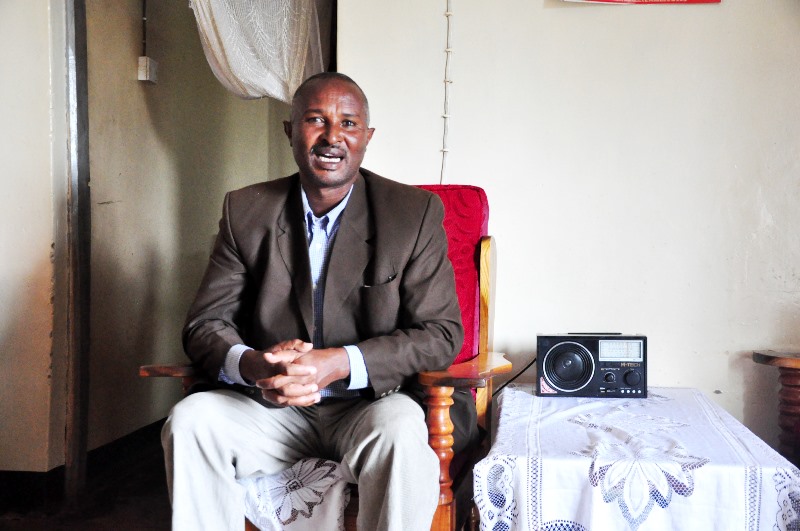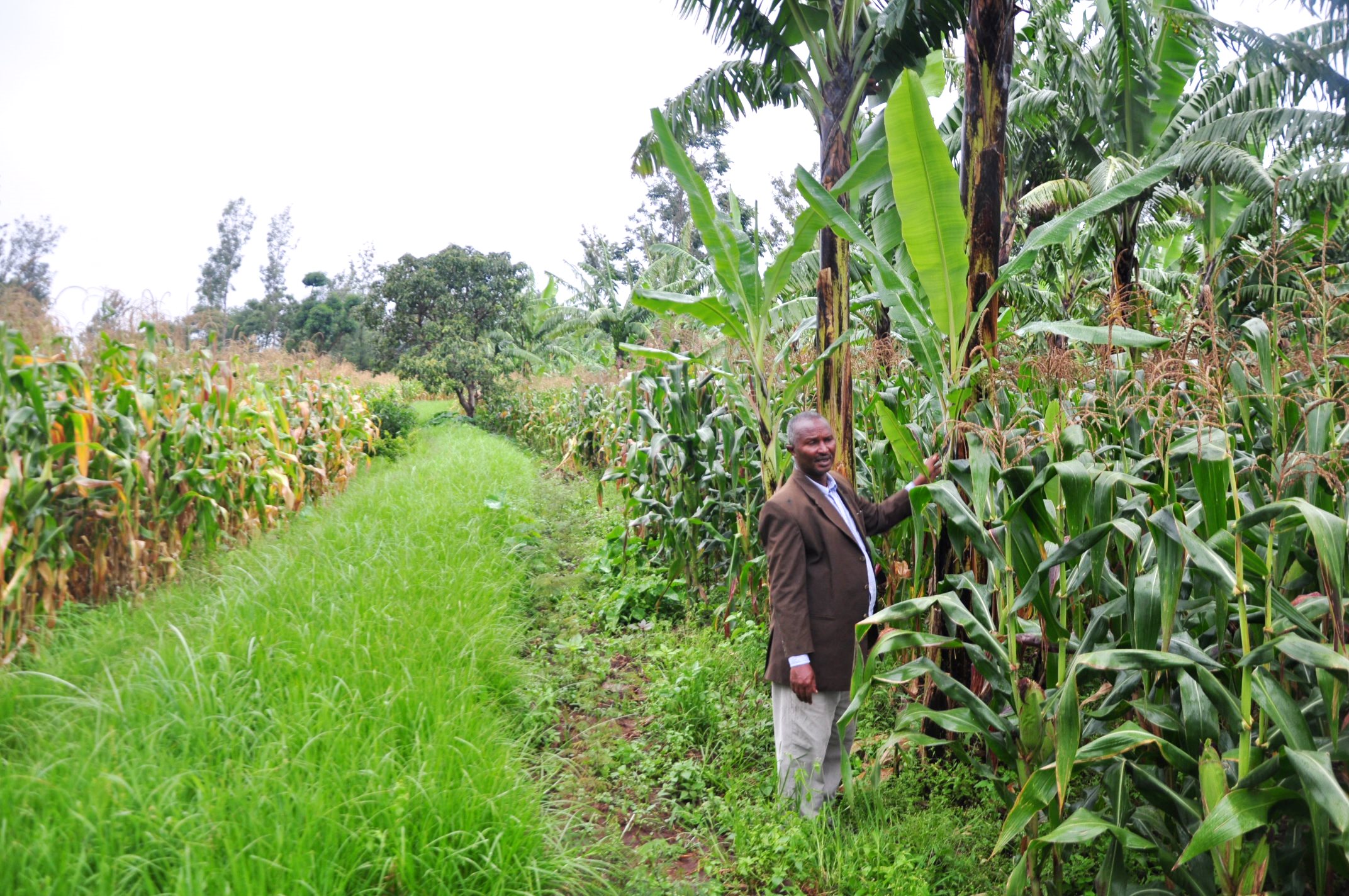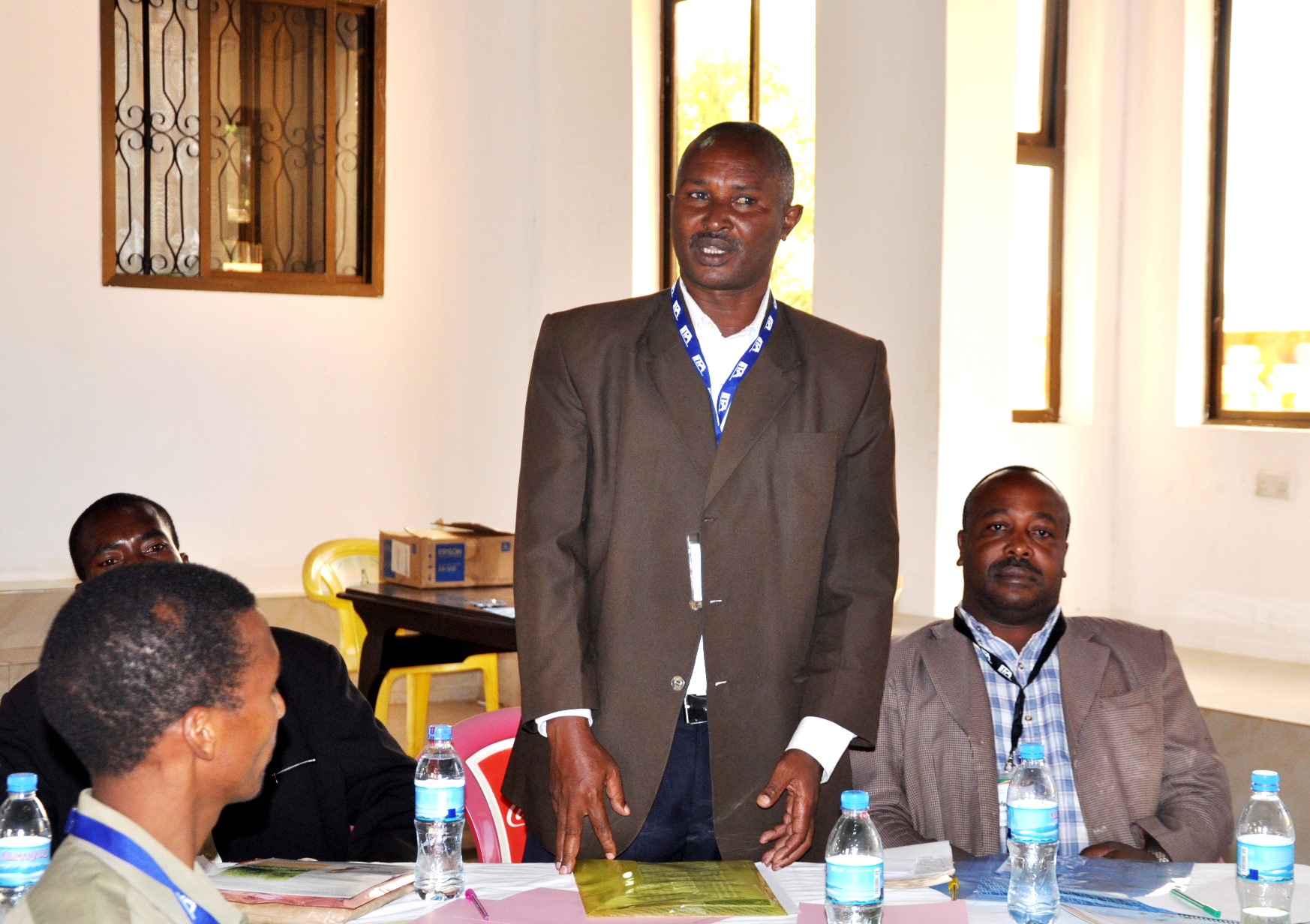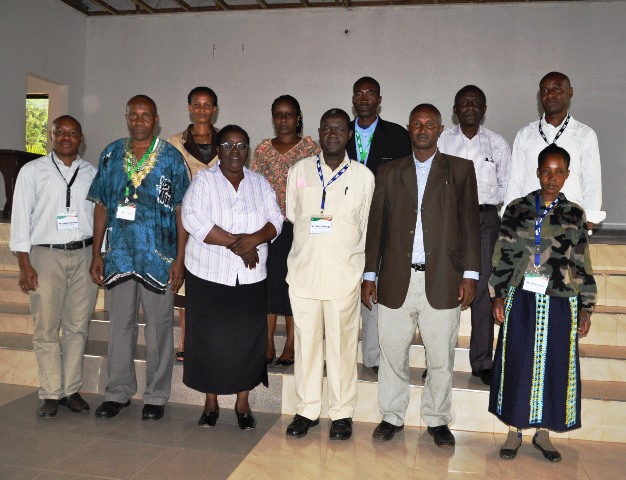Meet Andrea Mayi, Africa RISING lead farmer in Tanzania

Most smallholder farmers in sub-Saharan Africa are poor and struggling to eke out a living from their farms. The Africa RISING program is researching ways to transform the lives of these small-holder farmers by supporting them to maximize from all the various components of their farming systems, from their crops, their trees and their livestock so they are not only able to feed themselves but earn a decent income and to lead a decent life of dignity.
One farmer that the program has identified as a model farmer for others to emulate is Andre Mayi, 58, from Seloto village in Babati District in Tanzania. He is also the village chairman. Mayi has 10 acres of land and grows maize, pigeon pea, beans, banana (cooking and desert), vegetables, fruits and trees. He also keeps cows, goats, milk, local chicken and pigs.


According to Mayi, he is comfortably able to meet the needs of his immediate family of one wife and 7 children and seven other dependents – elderly relatives and orphaned nieces and nephews through farming.
“I can say I am self-sufficient. I have educated all my seven children with six of them up to college level. Two have finished university, and one is finishing this year. Two have completed diplomas in nursing finished, and one is currently studying for a diploma in pharmacy. And the youngest has just finished her O-levels and we expect her to join high school,” he says.
Africa RISING – dispelling the fertilizer myth and introducing new modern farming technologies
For all his many years of farming Mayi admits he had never used organic fertilizer until now. He believed it ruined the soils and so did nearly everyone else in his village. However, through Africa RISING initiative, this myth was proven wrong.
“I do not know where this information came from. But it’s something we all believed in our village – that using fertilizer will ruin your soil. So we only used manure. But now thanks to Africa RISING we now know, fertilizers improve the soil and sometimes manure alone is not enough,” he said.
He has now learned better ways of farming such as how to properly space and grow together the crops on his farm for maximum yield. He has also learned how to combined both manure with organic fertilizer to ensure his crops get all the nutrients they need. He has learned through the demonstration plots of the program on farmers’ fields.

The Africa RISING program has set up demonstration plots on farmers’ fields. On the plots the program scientists plant different improved varieties and follow recommended practices. They teach farmers on better farming practices and allow them to compare the new modern farming methods to their own. They demonstrate how to space and to used various fertilizers such as DAP, Mijingu mazao and mijingu chenga.
“This year, I also donated part of my land for demonstration and the trials. We are looking at how the varieties grow with fertilizer and without, and also with the different fertilizers so we can see the best fertilizer, “ he said. “ I am also doing some testing of my own. I have always used manure but this year, I applied fertilizer to a section of my land. I have seen a huge difference. Usually I get three bags but with the fertilizer I got 13 bags. And, I only did not do the recommended the top dressing. So that means I can even get more than this,” he said. “Many of the farmers are now starting to learn about fertilizers and are starting to demand for it. Before there was no demand.”
“I have learnt that when we grow crops, we take away nutrients from the soil. The project also came and measured our soils and let us know the deficiency. Parts of my land, though I put a lot of manure because I have a lot of livestock, were found to have low in nitrogen. We were advised to use fertilizer with nitrogen for example, minjingu mazao. And also inter-cropping with legumes such as beans and cowpea.”
The project is also focusing on the livestock kept by the farmers to address some of the challenges they face.
“Livestock feed is a major issue in our village. We keep a lot of livestock – cows, goats and sheep but we do not have enough grazing land. Thy are therefore not well fed and not healthy. They give little milk and poor quality meat. So the farmers do not benefit from their livestock,” Mayi said.
“The project has introduced livestock feed that we can grow on our farms for the livestock. However, we don’t have good breeds. I don’t know what breeds I have. I don’t know what they need e.g. minerals, vitamins. We need a lot of support still” he said.
Other areas he says that the project is supporting them is in tackling pests and diseases and reducing post-harvest losses including how to store crops without using pesticides.
He says the project fills in a large gap by training teaching farmers new farming methods. “Researchers and extension workers are not adequate in the ward. They are also not well equipped. But with Africa RISING, the project is bringing knowledge to the farmers through the demo plots. We are seeing and learning practically. the farms are well situated where everyone can see them.”
Representing farmers in the innovation platforms

One approach the project has taken to ensure the new technologies developed are taken up by the farmers through supporting technology adoption is creating innovation platforms. They bring together representatives of important sectors in agriculture from policy makers, private sector, development partners, NGOs and the farmers. Mayi represents farmers in the platform.

“ I am happy we formed an innovation platform where I am representing the farmers. I will bring the issues and challenges farmers are facing in adoption of new technologies to the platform. For example lack of good markets, we need to process our produce and not just sell fresh in the market.
His parting shot to to other farmers “ Be strategic. Though farmers do work hard they are often not strategic. They do not plan. They do not know how much money they are spending on and making from their farm. They therefore often sell their produce at a loss. They need support to become smarter farmers. “




